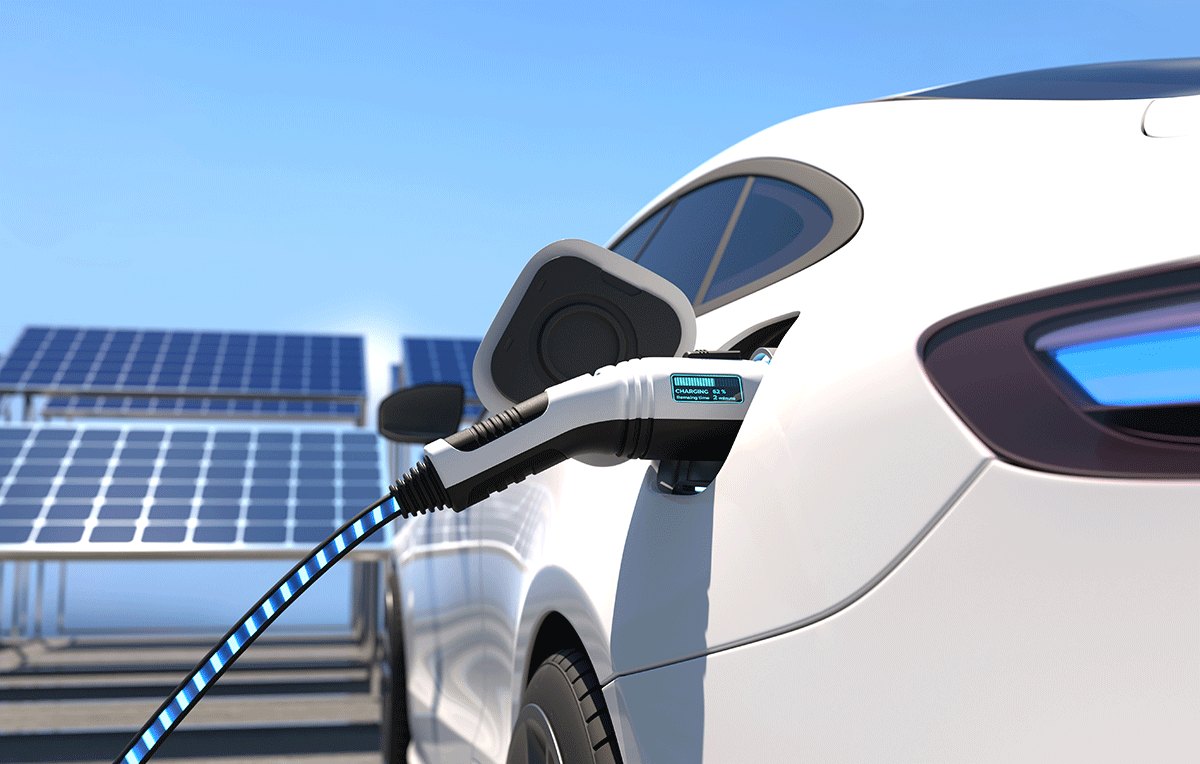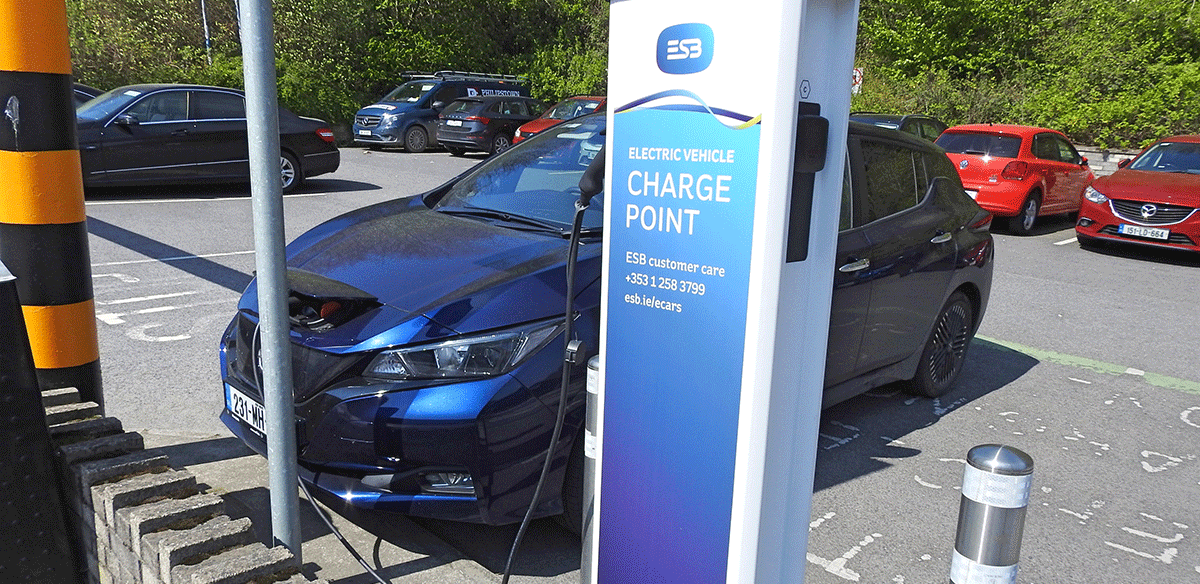Are you contemplating the switch to an electric vehicle (EV) but still unsure whether you can afford it or if it’s even the right move? Let’s delve into the experiences of a recent EV adopter to uncover insights into the transition.
To assist you in determining if an EV is the right choice for you, we’ll explore the upsides and downsides, coupled with cost considerations and electric car loan options. And if you’re leaning towards embracing an EV, check out our low-cost Credit Union Electric and Hybrid Car Loan options with rates from 6% (6.17% APR). Our car loan calculator will help you estimate your monthly payments and find the best financing plan to suit your budget.
So, what prompted the decision to buy an EV?
In 2022, I decided to research electric cars as my 2008 diesel had over 330,000km on the clock, was developing more problems, and was beginning to become a money drain.
Initially, when considering the switch to an EV, I had concerns, particularly regarding range anxiety and charging infrastructure. My primary goal was to ascertain whether these were genuine concerns.
I started by logging my weekly driving habits for 6 months, and this revealed that I travelled an average of 1,850km per month or 427km per week. Surprisingly, I realised that I only travel over 300km 2-3 times a year. I concluded that with a reasonably sized battery, my daily mileage posed no problems for an electric vehicle.
I heard some negative reports surrounding public charging infrastructure, but I intended on using home charging predominantly, so it wasn’t a concern.
Once I was convinced of the suitability of an EV, the next step was finding the right car at an affordable price point and looking at electric car finance options.
Making the switch to an electric vehicle
At the time, EV costs were at a premium, whether new or second-hand. However, to my surprise, electric car loan rates were very attractive.
Soon after, the upcoming arrival of the competitively priced MG4 caught my interest. Independent reviews were very positive, and it was positioned as a cost-effective alternative – on par price-wise with an entry-level Golf. Opting for the 64kw long-range variant priced at €32,500 (inclusive of SEAI grants), it offered a WLTP range of 450km. [WLTP is the Worldwide Harmonised Light Vehicle Test Procedure, and electric vehicles are tested against this standardised metric for range. It’s not accurate for real-world driving as the range depends on many factors – more on that later.]
Investing in a home charging station at a cost of €750 (inclusive of the SEAI grant) took care of 99% of my charging needs – I have only used public charging 3 times. The exorbitant costs associated with public charging underscores how vital home charging is. However, my experience with public charging, while infrequent, provided a seamless experience… albeit at a premium..

Was the decision to switch to an EV the right one?
Absolutely, the EV surpassed my expectations, easily accommodating my regular commute of 200km with ample range to spare. Weather conditions and driving style affect the range, which can fluctuate between 320km to 430km per full charge. Despite initial reservations regarding adjustment to a new driving style, the transition proved remarkably smooth, with the EV delivering a quiet and serene driving experience. I miss the growl of a combustion engine, but I prefer the smooth quiet drive.
Pros and cons of owning an EV:
Cons:
- Home charging is vital, given the prohibitive costs and time constraints associated with public charging. If you can’t install a home charger, you won’t reap the financial benefits of an EV.
- Present volatility in EV resale values underscores uncertainties surrounding EV ownership. VW and Tesla dropped their prices last year, and this has left some early adopters taking a hit on depreciation. The flip side is that there are some great deals on used EV’s, and many are still within warranty. It also means that EV’s are coming closer to similar spec’d combustion engines on pricing.
- Not suitable for frequent long-distance travel (regular 400km+ journeys). Some models feature larger battery packs and longer ranges, but they’re expensive.
- Navigating the diverse array of charging networks necessitates a learning curve. There are a few providers of public charging, and each provider has their own app for payment. I found this quite frustrating but in reality, I rarely used them, opting for home charging instead.
- Elevated tyre costs and accelerated wear and tear pose financial implications. EVs are heavier so this affects the tyres. Driving style will also increase or decrease the lifespan.
Pros:
- Substantial cost savings, partly due to the low-rate credit union electric car loan. I’m saving around €3,400 per year, or €283 a month.
- Diesel was costing an average of €280 per month. Using home charging at the lower night rate, is costing around €65 per month for the same mileage. With the anticipated increase in diesel prices due to the reinstatement of full excise duty rates, and the projected drop in wholesale electricity prices, the savings will be greater.
- Lower motor tax: EV motor tax is €120 per year. I was paying over €600 for my old 2.0L diesel.
- Lower insurance: My insurance premium dropped from over €650 to €305 with no change in cover.
- Lower servicing costs: An EV has around 90% fewer moving parts than a combustion engine. Less parts means fewer components that can break, and no carbon build-up, which is one of the main causes of combustion engine problems.
- It’s great fun to drive: Power is instantaneous which makes it fun to drive and very nimble. However, when you use more power, it reduces the range… if that bothers you!
- I love being able to turn on my car using the app. There is a lot to be said for getting into a lovely warm and defrosted car on a cold and icy winter morning. I can also use the app to find the car and track it – this proved very helpful after returning from holidays and forgetting where I parked in Dublin Airport!

Addressing concerns surrounding EV ownership:
Amidst the deluge of negative coverage surrounding EVs, my research dispelled most of these. Statistical evidence debunked fears of battery-related hazards; for instance, Australia’s Department of Defence working with EV FireSafe found there was a 0.0012% chance of a passenger electric vehicle battery catching fire, compared with a 0.1% chance for internal combustion engine cars.
Long battery warranties offered by manufacturers reassured against premature failure (my warranty was 7 years or 160,000km). On average, EV batteries degrade at a rate of 2.3% of maximum capacity per year, so after 10 years, an EV battery will still retain 77% capacity (450km range will drop to 347km – still plenty of range for my needs). However, power degradation, or loss of performance in delivering power to the powertrain rarely happens with EVs, unlike their combustion-powered counterparts. EVs don’t have carbon build-up which is a major cause of power loss and part failure in an ICE vehicle.
Advancements in battery technology also mitigated concerns of range degradation. Cells can now be replaced rather than a whole battery, which is far most cost effective and environmentally friendly. End-of-life batteries are also being used as a cost-effective option to store home and business energy.
So, would you recommend buying an EV?
I would, but it depends on whether it’s suitable for your needs. Home charging is a must otherwise you’ll lose the main benefits (savings!). I think that Ireland is perfect for an EV as to go from Malin head to Mizen head is a 696km drive and that would be achievable with one stop in most new EVs… and let’s face it, you would need at least one toilet stop or lunch break! When most people analyse their driving habits, they will probably realise that an EV is more than suitable, if home charging is an option.
You need an open mind though, and I would recommend hiring one or taking one for a couple of days on test – some dealers are offering this. It’s a significant investment so do your research.
Any other advice?
I found that joining the Irish EV Association group on Facebook was quite helpful in addressing my initial questions, and getting up to speed once I had my EV. Understandably it’s a bit biased in favour of EVs, but most of the members are very honest and forthright with their experiences, both good and bad. It’s a good place to start if you’re unsure about which car to buy.
If you decide an EV is the car for you, I also suggest considering adding solar panels at some stage. There are home chargers such as the Zappi that can charge your car from the grid, solar panels or a mixture of both. I found that adding solar panels further increased my energy savings and are worth the outlay as they pay for themselves within a few years. The payback is even shorter if you are using the excess power to charge your car.
For those who decide against buying an EV or Hybrid car, check out our handy car loans guide.
EV Car Loans from Croí Laighean Credit Union
If you’re considering buying an EV, talk to us about our credit union electric car loan with rates from 6%. Our competitive electric car loan deals not only support your financial goals but also positively impact our local communities.
The content of this blog post is to offer a real world experience of an EV owner. Anyone considering purchasing an EV should do their own research. While every care has been made in the production of this blog post, Croí Laighean Credit Union or any of its staff, cannot be held responsible for any omissions or errors.




 Join Us
Join Us